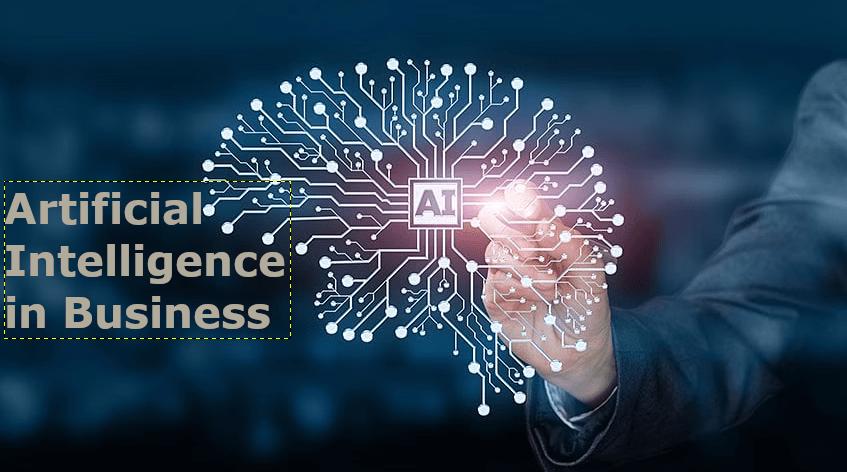
Artificial Intelligence (AI) had already made significant impacts on businesses across various industries. However, in the fast-paced world of technology, the field of AI is constantly evolving, and its impact and perspectives in business may have evolved further by the time you might be reading it. I’ll provide an overview of the general impact and perspectives of AI in business up to the current scenario.
Artificial Intelligence (AI) has become a transformative force in the business world, revolutionizing the way companies operate, make decisions, and engage with their customers. Its impact has been felt across various industries, and its applications continue to expand, providing numerous perspectives and opportunities for businesses.
Impact of AI on Business:
- Automation and Efficiency: AI has enabled businesses to automate repetitive tasks and processes, leading to increased efficiency and productivity. Tasks that once required manual labor or significant human intervention can now be handled by AI-powered systems, allowing employees to focus on more strategic and creative aspects of their work.
- Data Analysis and Insights: AI technologies, such as machine learning and natural language processing, have revolutionized data analysis. Businesses can now process and analyze vast amounts of data to gain valuable insights and make data-driven decisions, leading to improved performance and better customer experiences.
- Personalization: AI has enabled businesses to deliver personalized experiences to their customers. By analyzing customer data and behavior, AI systems can tailor product recommendations, marketing messages, and customer service interactions, leading to higher customer satisfaction and loyalty.
- Predictive Analytics: AI-powered predictive models can anticipate customer behavior, market trends, and demand patterns. This enables businesses to optimize inventory, pricing, and marketing strategies, ultimately increasing revenue and reducing costs.
- Chatbots and Customer Service: AI-driven chatbots and virtual assistants have transformed customer service operations. These bots can handle routine customer queries, provide instant support, and improve response times, enhancing the overall customer experience.
- Fraud Detection and Security: AI algorithms can detect anomalies and patterns in transactions and user behavior, helping businesses to identify potential fraud and enhance security measures.
- Supply Chain Optimization: AI has played a crucial role in optimizing supply chain management by predicting demand, streamlining logistics, and reducing inefficiencies.
Perspectives of AI in Business:
- Continued Growth: The adoption of AI in business is expected to continue growing as organizations recognize its potential to drive innovation, improve competitiveness, and increase profitability.
- Ethical Considerations: As AI becomes more pervasive in business operations, ethical considerations surrounding data privacy, algorithmic bias, and AI-driven decision-making will gain more prominence. Businesses will need to address these concerns to maintain trust and avoid potential backlash.
- AI in Decision-Making: There will likely be an increasing trend of integrating AI into strategic decision-making processes at higher levels of management. AI can provide valuable insights and recommendations to assist executives in making informed choices.
- AI Talent and Skills Gap: The demand for AI talent will continue to rise, leading to a skills gap in the industry. Companies will need to invest in upskilling their existing workforce and attracting AI experts to stay competitive.
- Regulation and Governance: Governments and regulatory bodies are likely to pay more attention to AI applications in business. Striking the right balance between encouraging innovation and ensuring responsible AI usage will be an ongoing challenge.
- AI and Job Disruption: The widespread adoption of AI may lead to job displacement in some sectors. Businesses and governments will need to focus on reskilling and supporting workers to transition to new roles in the AI-driven economy.
- AI in Emerging Industries: As AI technology matures, it is expected to play a vital role in emerging industries, such as autonomous vehicles, healthcare, and renewable energy, opening up new business opportunities and challenges.
Perspectives on AI in business are continuously evolving, and the technology will likely become even more integrated into various aspects of operations. While businesses stand to benefit significantly from AI adoption, careful consideration of its implications and potential risks is vital to ensure responsible and effective use. As technology advances, collaboration between businesses, policymakers, and AI developers will be crucial in shaping the future of AI in business.
Remember that these perspectives are based on the state of AI as of today, and developments in the field may have significantly shaped the impact and perspectives of AI in business by the time you are reading it.
You might also like our TUTEZONE section which contains exclusive tutorials on how you can make your life simpler using technology.




